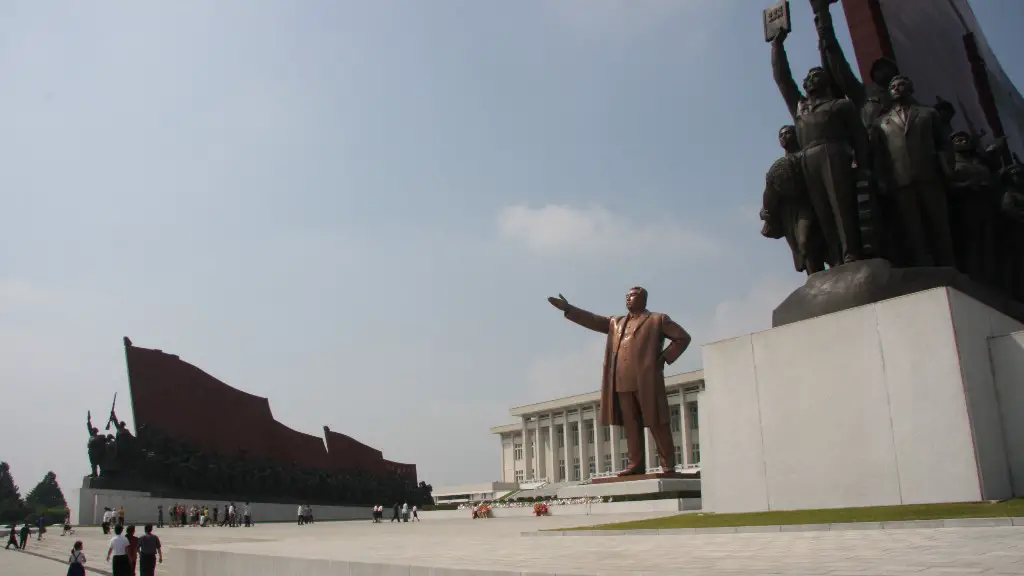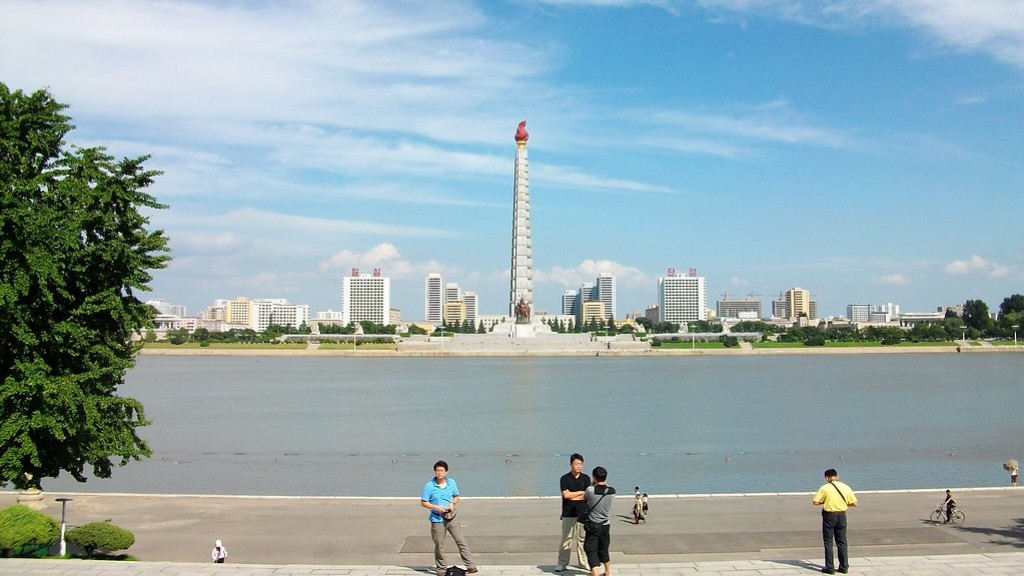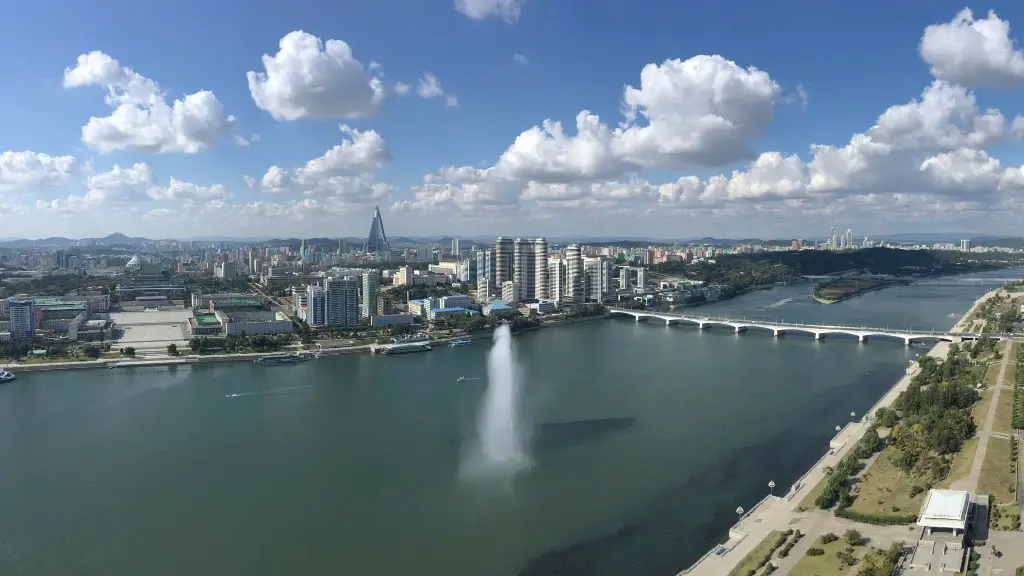Government Inaction
The most important factor in explaining why nothing is being done about North Korea is the inaction of the international government. The government in the international community is not doing enough to pressure Pyongyang and to enact meaningful sanctions. The international community prefers economic and diplomatic strategies which are more proactive, preventive and coercive. The government has tried to effect policy change in North Korea for decades, but leaders have mostly been content to accept the status quo, using the same policies and incentives that have historically been unsuccessful. This reluctance to take action has been attributed to the political risks in doing so, as world powers could risk damaging their regional relations or destabilising the peninsula.
The international community has failed to muster both the political will and forces necessary to hold the North Korean government accountable for its actions. For example, despite UN Security Council resolutions and sanctions imposed on North Korea, the country has been able to acquire much-needed resources from China and Russia. It has also evaded sanctions for acquiring petroleum and raw materials for nuclear-related activities. As a result, the international community has failed to effectively contain the activities of North Korea.
Global Tension
The global tension has made it difficult for the international community to respond to the threats posed by North Korea. North Korea has repeatedly violated international law and flouted UN resolutions. It has conducted nuclear tests, tested intercontinental ballistic missiles (ICBMs) and launched missiles over Japan despite protests at the international level.
The nuclear brinkmanship of North Korea is even more concerning. Pyongyang has consistently refused to abide by international rules, policies and agreements, while continuing its provocative actions. This has led to the further bolstering of nuclear weapons and technology in the country, making it a potential threat to global security. This has created a sense of unease and fear in the international community, making it harder to find a consensus in tackling the situation.
In addition, the fear of military action by the United States, as well as its allies, has also acted as a deterrent for the international community from taking more aggressive action. For instance, the Trump administration’s repeated threats to use the “military option” to deal with the North Korean situation has created uncertainty, preventing the international community from taking a united stance on tackling the situation.
Economic Sanctions
Furthermore, economic sanctions have been imposed on North Korea by the international community, as a form of punishment, but they have yet to be effectively enforced. Economic sanctions are meant to hurt the North Korean economy and deprive the country of necessary resources, but they have proven ineffective in achieving their stated objective. For instance, despite the efforts of the US and the global community, North Korea’s economy has continued to grow. There is evidence that North Korea has been able to avoid sanctions and circumvent the global economy, allowing it to gain access to much-needed resources.
In addition, these sanctions have had a negative effect on the North Korean population, denying them access to basic necessities. Many North Koreans continue to live in poverty and lack access to essential services such as healthcare, education and food.
It is also important to note that sanctions are only effective when all countries are fully committed to their enforcement. However, the limited cooperation among members of the international community, coupled with Pyongyang’s ability to evade sanctions, have rendered the measures largely ineffective.
Chinese Control
Finally, the Chinese government has provided financial and diplomatic support for North Korea, allowing it to develop nuclear weapons and remain resistant to international pressure. China has enabled North Korea to avoid tough economic sanctions, by providing access to financial resources, which would otherwise be inaccessible. This, in turn, has allowed North Korea to continue its nuclear weapons build-up and expand its missile technology.
China has consistently engaged in bilateral relations with North Korea and has even presented a “tacit acquiescence” of Pyongyang’s nuclear weapons program and provocative actions. This has further inhibited the international community’s ability to take strong measures against North Korea and to effectively curb its nuclear ambitions.
Though Chinese policymakers and diplomats are occasionally responsive to international pressure, the Chinese government remains ideologically committed to a policy of non-interference in the internal affairs of other nations. This policy has been used to downplay the principle of sovereignty and prevent international law from being meaningfully applied in the context of North Korea.
Public Awareness
Despite the fact that the international community is aware of the situation in North Korea, not enough is being done to tackle the issue. People are often not fully aware of the gravity of the situation in North Korea and the danger posed by its nuclear weapons program. This lack of public awareness has meant that the issue has not been subject to the media coverage and public scrutiny it deserves. This, in turn, has resulted in a lack of urgency among leaders to take action.
The lack of public pressure also means that the international community has failed to mobilise the necessary resources to put an end to North Korea’s nuclear program. The public not being sufficiently informed of the situation has made it difficult for activists and civil society organisations to effectively mobilise the necessary resources and pressure the international community to act.
Public Discourse
The public discourse surrounding North Korea has tended to focus on the country being a “rogue state”, without focusing on the devastating effects of its nuclear program. The public discourse has also tended to shield North Korean leaders from accountability for their actions. Instead, the narrative has been driven by the need to contain the North Korean threat, rather than something that needs to be eradicated.
This has made it difficult for the public to see the full scope of the issue at hand, or to see why real action needs to be taken. This lack of understanding has made it difficult for the international community to effectively tackle the issues, as leaders have failed to clearly explain the dangers posed by North Korea.
Furthermore, the international community has failed to educate the public about the effects of sanctions, or on the need for genuine dialogue with North Korea. Instead, the discourse has been focused on military action, which has often troubled the public and generated more fear instead of facilitating positive change.
Limited Resources
The resources available to tackle the situation in North Korea have been limited, due to the lack of support and financing from the international community. This has meant that organisations and activists working on the issue have had limited resources to draw upon in their efforts. In addition, the North Korean government has actively blocked external aid, leaving those in need with limited access to medical care and basic necessities.
The limited resources and funding has also meant that there has been inadequate research into potential solutions. This has led to a lack of effective strategies to counter the North Korean nuclear threat and to facilitate meaningful dialogue between North Korea and the international community.
Regime Change
A more drastic approach to the North Korean situation has been the suggestion of regime change. However, this has been controversial, as it could lead to instability in the region. This has been a major deterrent for prominent actors, who are hesitant to intervene in a situation that could have dire consequences, both domestically and internationally.
Moreover, the suggestion of regime change has also been seen as a way to prop up US and Western influence in the region. This has been met with scepticism and has further contributed to the inaction of the international community. Many have raised concerns that a regime change could result in mass demonstrations and violence, further threatening the stability of the peninsula.
Lack of Alternative Solutions
Finally, the lack of alternative solutions has meant that the international community has been slow to act, as leaders have failed to find meaningful ways to address the security challenges posed by North Korea. Many have raised concerns that any action taken could have far-reaching repercussions, exacerbating the situation and leading to a war. As such, a consensus has yet to be reached, and little has been done to end the North Korean nuclear weapons program.
In addition, the international community has been unable to find solutions that both focus on the interests of North Korea and the international community. This has been complicated by the divergent views of the key actors in the region and the lack of dialogue between them.
Implications on the Region
The inaction of the international community has already had a number of implications in the region. North Korea has built up a substantial arsenal of nuclear weapons and weapons of mass destruction, and it has refused to abide by international rules and norms. This has led to a heightened sense of tension in the region, with countries such as South Korea, Japan and the United States being particularly vocal in voicing their concerns.
Moreover, North Korea has continually tested missiles and engaged in other provocative activities, which has generated fear among its neighbours. This, in turn, has hampered the efforts of the international community to contain the threat posed by North Korea. Countries in the region have also been unwilling to provide the necessary resources to tackle the problem adequately.
In addition, the lack of action has meant that North Korea has continually undermined the principles of non-proliferation and global security. This has sent a worrying message to other actors in the region and has acted as a deterrent to meaningful dialogue.
Strained Coordination
Finally, coordination with regards to the North Korean situation has been strained, as countries have failed to agree on a unified strategy. The United States and China, two of the key actors, have been at odds in their approach to the issue and have yet to find a middle ground. This has hindered efforts to reach a consensus and has resulted in a lack of collective action.
In addition, the global community has failed to mobilise the necessary resources to tackle the situation adequately. This has meant that organisations and civil society have had limited access to resources, making it more difficult to build a unified effort to pressure the North Korean regime.
Moreover, the failure to act has resulted in the issue being overlooked and forgotten by the international community. This has resulted in a lack of urgency, as leaders have failed to make the issue a priority. As such, North Korea’s nuclear ambitions have continued to expand unchecked.





